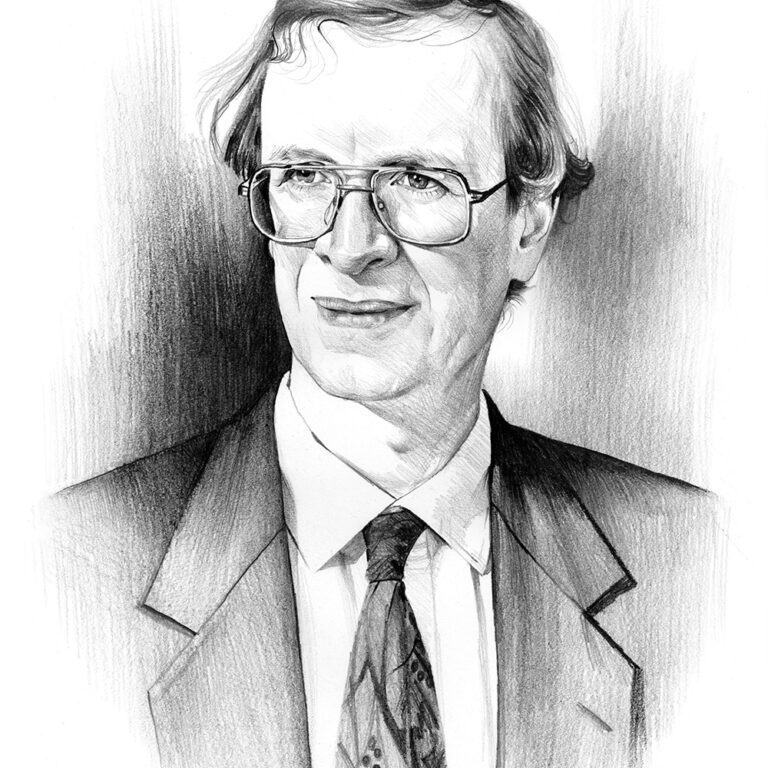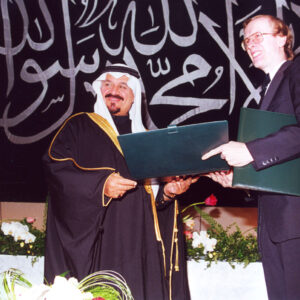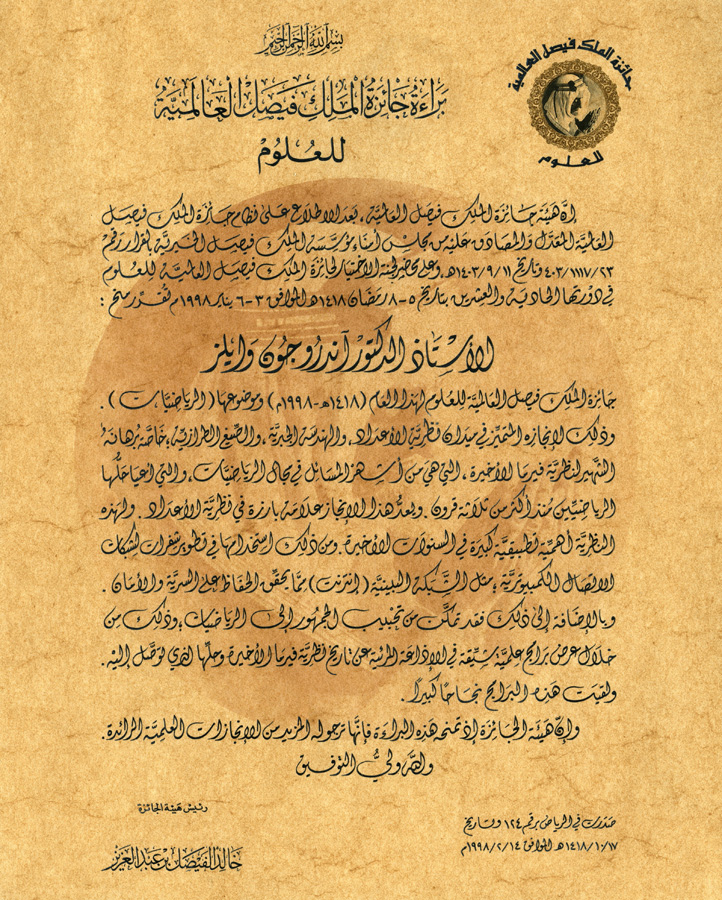

Professor Andrew J. Wiles
King Faisal Prize in Science 1998 Laureate
Topic: "Mathematics"
After eight years of continuous effort, I finally found a proof. My childhood dream came true

Andrew J. Wiles received his B.A. in Mathematics from Merton College at Oxford in 1974 and his Ph.D. from Clare College at Cambridge in 1980. During his doctoral studies, he was a Junior Research fellow at Clare College, Cambridge University, and a Benjamin Peirce Assistant Professor at Harvard University. After completing his degree, he spent some time as a scholar at the Institute of Theoretical Mathematics (Sonderforschungsbereich Theoretische Mathematik) in Bonn, Germany, then joined the Institute for Advanced Study at Princeton in 1981, where he became a professor in 1982. In 1988, he was named the Royal Society Research Professor at Oxford University. In 1994, he was appointed as a Eugene Higgins Professor of Mathematics at Princeton University.
Professor Wiles is an outstanding mathematician with distinguished contributions to number theory, algebraic geometry and modular forms. He earned international recognition following his proof of Fermat’s Last Theorem in 1995. This theorem is one of the most famous problems in mathematics. It remained unresolved for more than 350 years, despite numerous previous attempts to solve it. Although falling into an obscure branch of mathematics, the solving of this problem is a stunning tour de force that revolutionized the study of elliptic curves in number theory. Its solution resulted in outstanding practical applications, such as the development of public key cryptology, allowing communication on public computer networks, such as the Internet, without compromising privacy.
Professor Wiles’ proof of Fermat’s Last Theorem earned him many prestigious honors, including the Schock Prize, the US National Academy of Sciences Mathematics Award, the Prix Fermat, the Ostrowski Prize, the Wolf Prize, the Commonwealth Award, and the Cole Prize in Number Theory. He was also awarded the Guggenheim Fellowship during 1985-1986, which enabled him to visit the Institut des Hautes Études Scientifique in Paris and the École Normale Supérieure in Paris. He was elected a Fellow of the Royal Society and the US National Academy of Sciences.
This biography was written in the year the prize was awarded.
- In 2000, he received the Order of the British Empire.
- He held several positions including:
- James S. McDonnell Distinguished University Professor of Mathematics in 2009.
- Royal Society Professor at Oxford University in 2011.



